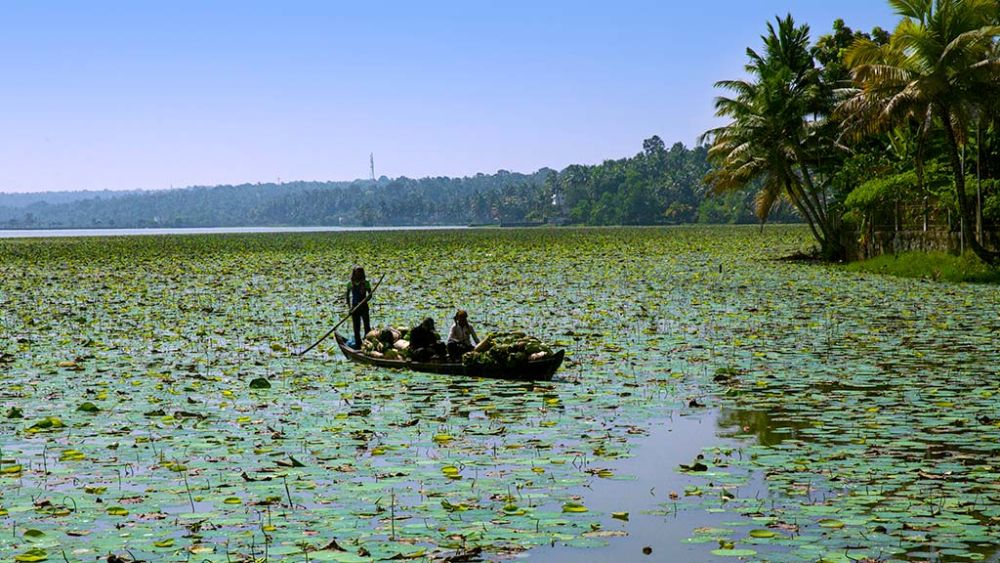

Vellayani Lake, nestled in the picturesque coastal town of Kovalam in Kerala, India, is one of the few freshwater lakes in the country's southern region, known for its serene beauty and tranquil surroundings. Often overshadowed by the popular beaches of Kovalam, Vellayani Lake has been a hidden gem for many years, attracting those who seek peaceful backwater experiences away from the bustling tourist spots.
Tourism at Vellayani Lake took a gradual upswing with the overall rise in Kerala's popularity as a tourist destination. Known for its backwaters, lush landscapes, Ayurvedic tourism, and cultural heritage, Kerala introduced travelers to Vellayani Lake over time. Initially, the lake was more of a local retreat, but it gained attention when tourists sought quieter and less commercialized spots than the nearby Kovalam Beach.
Historically, Vellayani Lake gained wider attention during the famous Onam festival when the traditional boat race takes place, drawing both local and international spectators. This annual event became a starting point for the lake's tourism history, putting it on the map for those keen on experiencing authentic Keralan culture.
With the global shift towards sustainable travel, Vellayani Lake saw an opportunity to position itself as an eco-tourism spot. Authorities and local communities started promoting activities that would cause minimal environmental impact while maximizing visitor enjoyment. Nature walks, bird watching, and small-scale boat rides allowed tourists to enjoy the beauty of the lake without disturbing its delicate ecosystem.
In recent years, Vellayani Lake has seen a surge in interest, especially among tourists who are looking for experiences off the beaten track. Homestays and eco-friendly resorts have begun to spring up around the area, offering travelers a comfortable stay while maintaining the ethics of sustainability and community inclusion. Wellness tourism, in conjunction with Ayurveda and yoga retreats, has also become increasingly popular around Vellayani Lake, as travelers seek holistic health experiences amidst nature.
Agri-tourism is another growing trend, with visitors interested in understanding and experiencing the local agricultural practices. The terraced paddy fields around Vellayani Lake offer tourists a chance to learn about the traditional methods of rice cultivation, unique to this part of India.
As Vellayani Lake continues to rise in prominence as a tourism spot, concerted efforts are being made to ensure the preservation of its natural beauty and the well-being of its surrounding communities. Initiatives such as controlled visitor numbers, the promotion of green practices among service providers, and awareness campaigns on conservation are being implemented, aiming to create a sustainable model for tourism that other destinations could emulate.
The future of tourism at Vellayani Lake appears bright, balancing the delicate relationship between nature conservation and visitor satisfaction. It continues to attract those who seek moments of peace and an immersive experience in one of Kerala's most enchanting backwater destinations.